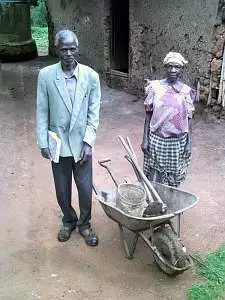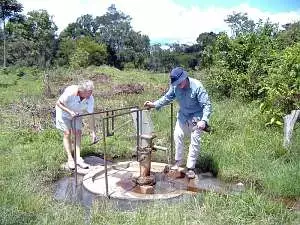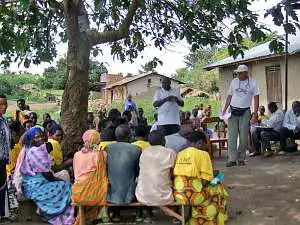 Registered Charity No. 1027351
Registered Charity No. 1027351
International Projects
Working with farmers in Uganda
Mubende is a predominantly rural area of Uganda, some 100 miles west of Kampala. We have been working with farmers in the district since 1997 when we first met a Ugandan Rotarian who worked with charities promoting sustainable, organic farming methods.
She introduced us to Kulika and their chief executive, Elijah Kimuwendo. Elijah has helped us to identify and set up several projects over the years developing the sustainability of farms and agricultural activity around Mubende.
The first project was when Vesper bought a set of hand tools for every farmer (mainly women) in one community and they were presented personally by a team of four Rotarians from our club. On a later visit we gave them goats which produced fertiliser, milk and meat for them.
Our third project was to construct a well at Kyamukoona so the local community had access to fresh water in the village instead of having to walk four miles each way to get it. As this work would often be done by children, this freed time for them and led to increased attendance at school.
Over the years, Rotarian Andrew Bartholomew, a veterinarian surgeon from Oxford, has given many training talks to local farmers and key farmer-trainers from Kulika on animal husbandry and how to manage their finances. This has led to Vesper setting up three micro credit schemes in the Mubende area. Each is managed by a community-based group of 20-30 people, supported by Kulika, and who approve and take collective responsibility for every loan awarded. The loans are for buying livestock, seeds, equipment or anything that the farmer needs to help develop his or her business. They are repayable over ten months at low rates of interest.
Since October 2007 when the schemes were set up, 440 loans have been made. All have been repaid in full and on time, and all have made a profit for the farmer. In one case, the farmer quadrupled his income. As a result of this, the farmers have been able to grow their businesses, reinvest in their farms and better provide for their children's education.
Following this resounding success, three more schemes are now being set up with the intention of more to follow.






